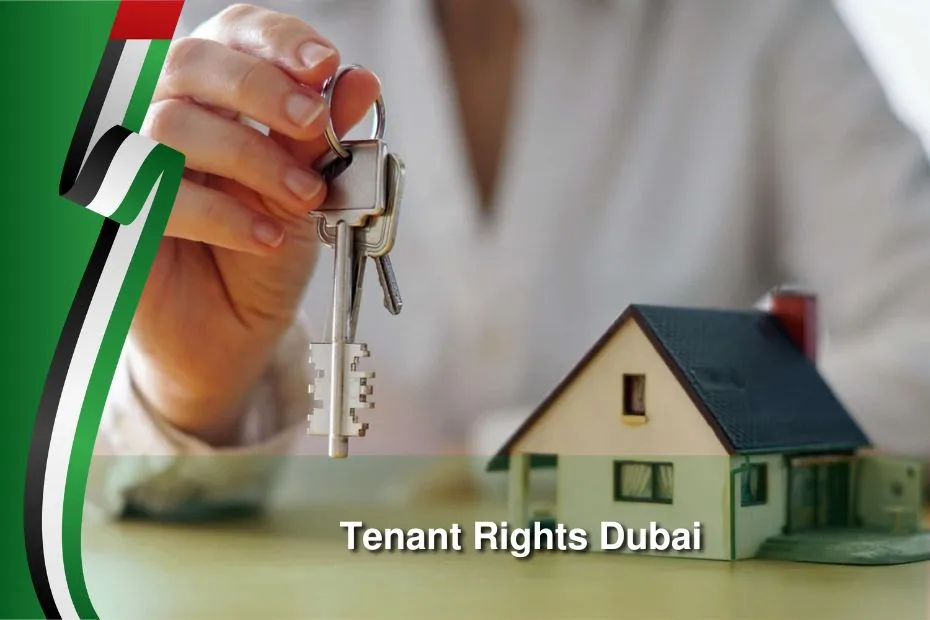Understanding Dubai’s Rental Landscape
Dubai’s thriving real estate sector offers a dynamic rental market governed by well-defined regulations to ensure fairness and transparency for both tenants and landlords. The Real Estate Regulatory Agency (RERA), a division of the Dubai Land Department (DLD), enforces laws that protect tenants’ rights while outlining their responsibilities. Understanding these legal frameworks is crucial for a smooth and compliant tenancy experience in Dubai.
Regulatory Framework: Key Tenancy Laws
Dubai’s rental laws are structured to protect both landlords and tenants, ensuring a balanced approach to property leasing. The key regulations include:
- Law No. (26) of 2007 – Regulates tenant-landlord relationships in Dubai.
- Law No. (33) of 2008 – Amends aspects of the 2007 law, refining rights and obligations.
- Decree No. (26) of 2013 – Establishes the Rental Disputes Settlement Centre (RDSC) for conflict resolution.
- Decree No. (43) of 2013 – Introduces rent increase regulations based on market conditions.
These laws ensure that all rental agreements adhere to a fair and standardized process, providing security and clarity for tenants.
Tenant Rights in Dubai
1. Right to a Registered Tenancy Contract
All tenancy agreements must be registered with RERA through the Ejari system. This digital registration protects tenant rights and ensures legal recognition of the rental contract.
2. Right to a Safe & Habitable Property
Landlords must provide tenants with a well-maintained and habitable property, ensuring basic utilities, structural integrity, and safety measures.
3. Right to Privacy & Peaceful Living
Tenants have the right to privacy, and landlords are prohibited from entering the property without prior notice, except in emergencies.
4. Protection Against Arbitrary Rent Increases
Dubai’s rent control laws prevent landlords from increasing rent arbitrarily. Any rent hike must comply with RERA’s Rental Index and be communicated in writing at least 90 days before lease renewal.
5. Right to Fair Eviction Processes
Tenants cannot be evicted without valid legal reasons. Acceptable grounds for eviction include non-payment of rent, illegal property use, or if the landlord intends to sell or occupy the unit personally. Even in these cases, landlords must provide proper legal notice as per Article 25 of Law No. (26) of 2007.
Tenant Responsibilities in Dubai
1. Timely Rent & Utility Payments
Tenants must adhere to agreed payment schedules for rent and utilities. Delays can result in penalties or legal action.
2. Proper Use of the Property
The leased property must be used strictly for the intended purpose (residential or commercial) stated in the contract.
3. Maintenance & Upkeep
While landlords handle major structural repairs, tenants are responsible for minor maintenance and general upkeep of the property.
4. Compliance with Contract Terms
Tenants must abide by all contractual terms, including rules related to subleasing, pet ownership, and property modifications. Written landlord approval is required for any alterations.
5. Notice for Non-Renewal
Though not legally mandated, it is advisable to notify the landlord well in advance if you plan not to renew your lease, to ensure a smooth transition.
Dubai’s Rent Regulations & Increase Guidelines
Rent Cap System
Dubai’s rent control system under Decree No. (43) of 2013 regulates rent increases as follows:
- No increase if the current rent is within 10% of the market rate.
- 5% increase if rent is 11% to 20% below market average.
- 10% increase if rent is 21% to 30% below market average.
- 15% increase if rent is 31% to 40% below market average.
- 20% increase if rent is more than 40% below market average.
All rent adjustments must be communicated 90 days before lease renewal.
Eviction Rules & Tenant Protections
Landlords can evict tenants only under specific circumstances outlined by Article 25 of Law No. (26) of 2007:
- Non-payment of rent after receiving a 30-day notice.
- Property misuse or damage beyond reasonable wear and tear.
- Personal use or sale of the property by the landlord, requiring 12 months’ notice.
- Renovation or demolition requiring significant work, with 12 months’ notice.
If eviction disputes arise, tenants can seek legal recourse through the Rental Disputes Settlement Centre (RDSC).
Dispute Resolution & Tenant Support
Rental Disputes Settlement Centre (RDSC)
The RDSC, part of the Dubai Land Department, resolves rental conflicts through arbitration and legal proceedings. Tenants can file complaints online or visit the RDSC office.
Ejari Complaint System
If a tenancy contract is not registered in Ejari, tenants can lodge a complaint with RERA to ensure compliance.
Legal Support
Tenants can seek assistance from legal firms specializing in real estate disputes, such as Hadef & Partners, BSA Ahmad Bin Hezeem & Associates, and Al Tamimi & Company.
Finding the Best Rental Property in Dubai
Top Rental Areas in Dubai
Dubai offers a wide range of rental properties, with some of the best areas for tenants including:
- Downtown Dubai – Ideal for luxury apartments and city living.
- Dubai Marina – Popular for waterfront properties.
- Jumeirah Lake Towers (JLT) – Affordable high-rise living.
- Dubai Silicon Oasis – Great for family-friendly communities.
- Mirdif – Offers spacious villas at competitive prices.
Leading Real Estate Agencies in Dubai
For a seamless rental experience, consider consulting reputable real estate agencies such as:
- Emaar Properties (www.emaar.com)
- DAMAC Properties (www.damacproperties.com)
- Betterhomes (www.bhomes.com)
- Allsopp & Allsopp (www.allsoppandallsopp.com)
- Bayut (www.bayut.com)
Final Thoughts
Understanding tenant rights and responsibilities in Dubai is essential for a secure and hassle-free rental experience. By being aware of RERA regulations, rental caps, and dispute resolution mechanisms, tenants can ensure a smooth tenancy process while avoiding legal complications. Whether you’re new to Dubai’s rental market or a long-term resident, staying informed will help you make the best housing decisions in this vibrant city.
For further insights on Dubai’s real estate market, explore listings on Bayut, Property Finder, and Dubizzle, or consult leading real estate firms such as Emaar Properties and DAMAC Properties.





